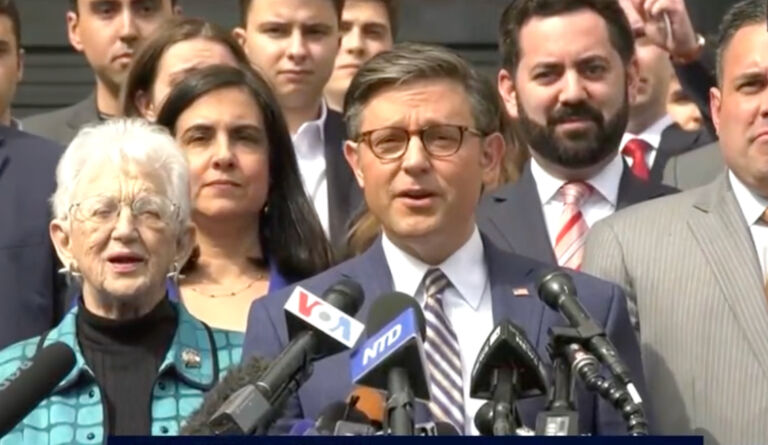Editors at National Review Online assess the latest challenge for a new U.S. House speaker.
The speaker of the House is supporting a continuing resolution to fund the government at current spending levels for a few months. Some Republicans oppose the continuing resolution. With only a handful of Republican votes to spare, the speaker might have to rely on Democratic votes to pass the continuing resolution and avoid a government shutdown.
No, this editorial isn’t from September. Speaker Mike Johnson is already finding himself in roughly the same position Kevin McCarthy was in.
Congress must pass a funding bill by the end of this week, or else the government will shut down. The House was not working most of last week, and over the weekend, Johnson introduced his idea for a “laddered” continuing resolution. Four of the twelve appropriations bills would be funded at current levels through January 19; the other eight would be funded through February 2.
Johnson says this approach is beneficial to fiscal conservatives because it prevents the oft-practiced yet ignominious congressional tradition of passing massive omnibus spending bills around Christmastime when members just want to go home and aren’t paying attention to what they’re voting for. But enough GOP House members have already said they would not support Johnson’s proposal to sink it. They oppose it because it doesn’t include spending cuts.
So if Johnson wants to pass his laddered CR, he will need to rely on Democratic votes in the House. This was the grievous sin that supposedly necessitated Kevin McCarthy’s removal from the speakership a little over a month ago.
Clearly, there were other issues at play, including McCarthy’s overall relationship with the conference, which is very different from Johnson’s, and the apparently unquenchable desire among a handful of GOP members for attention. And Johnson has not yet passed the CR with Democratic votes, and hypothetically could change course.

